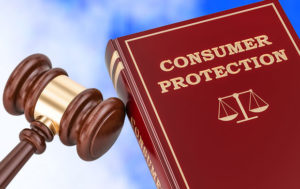
Most everyone on the Internet reads Wikipedia, whether they rely on it or not, but few understand how wikis work or who owns the content. Understanding content ownership is important, because so many people freely contribute to wikis. If the owner of the wiki decides to revise or move the content, that could lead to a lawsuit.
Similarly, if the contributors move the content, that too could lead to a lawsuit. A case was recently filed on just this issue — moving content. However, it is not copyright infringement that’s alleged, but rather trademark infringement and unfair business practices.
Understanding Wikis
Wikis are a critical component of social media and continue to evolve, as does social media generally. As of September 2012, the most well known wiki, Wikipedia, claimed to have 23 million articles contributed by individuals around the world in 285 languages, and an estimated 2.7 billion monthly page views in the U.S. alone.
In addition to Wikipedia, there are thousands of wikis in use today, including internal business wikis closed to public view and public wikis of all sorts.
Although wiki content is contributed by wiki members, because the development of wiki content is iterative and results from multiple contributors, ownership of wiki content may not be clear. And interestingly, there have been no major copyright infringement cases interpreting who owns what.
What’s in a Name?
“Wiki” is Hawaiian for fast or quick, which of course has nothing to do with what a wiki is. The definition of a wiki on Wikipedia is a good as any: “A wiki is a website which allows its users to add, modify, or delete its content via a Web browser usually using a simplified markup language or a rich-text editor. Wikis are powered by wiki software. Most are created collaboratively.”
Wikis serve many different purposes, such as knowledge management and note taking. Wikis can be community websites and intranets, for example. Some permit control over different functions (levels of access).
Ward Cunningham created the first wiki software technology in 1995, naming it “WikiWikiWeb” after the shuttle bus at Honolulu International Airport, which was called the “Wiki Wiki Shuttle,” Wikipedia notes.
Open Source Is Free and Popular on Wikis
Because of the joint nature of authorship on wikis, most wikis, including Wikipedia, rely on some open source software, and Wikipedia’s Terms of Use encourage visitors to share and reuse the content under the open source license. Wiki postings may be copied under the open source software licenses because open source encourages making copies and relies on a concept called “copyleft.” The term is a play on words and is unlike copyright, which restricts copying.
Generally open source software is free, which is a very attractive feature, to be sure. But since wiki content is often controlled by open source licenses, the ownership of any wiki content is not entirely clear.
Wiki content being created in a collaborative effort by multiple authors is the norm, so the authors may be considered to have a joint copyright interest in the content they create — except, of course, where the individual authors can separately distinguish which component parts were contributed by them as opposed to others.
The most public wikis have a team of dozens of volunteer administrators to protect the quality of the content posted, remove spam, and otherwise oversee the accuracy of the wiki and the website.
Who Owns Wikis?
While ownership of the content on wikis is one question, the ownership of the wiki itself is another. Wikis are owned by both profit and nonprofit entities.
One wiki owner is the Wikimedia Foundation, which is the parent company of Wikipedia (and many other related wikis). Unlike most high-profile social media operations, it is a tax exempt 501(c)(3) organization. That allows people to contribute cash to the Wikimedia Foundation and get a tax deduction in the process. So, rather than make huge profits like other social media companies, the Wikimedia Foundation operates on whatever monies it receives from its annual fund drives.
In 2011, Google cofounder Sergey Brin and his wife Anne Wojcicki (23andMe cofounder) used their Brin Wojcicki Foundation to grant US$500,000 to the Wikimedia Foundation. The Wikimedia Foundation kicked off its 8th annual fundraiser on November 16, 2011, and raised $1.2 million the first day.
What happens if the author of any wiki content copies the wiki content they contributed to one wiki in order to create a new wiki? (This action, called “forking,” is described in more detail below.) Is such forking a copyright infringement since the author contributed to the original wiki?
Wikitravel Got Forked
Like Wikipedia, the Wikitravel website relies on thousands of travelers to post content. Wikitravel now has more than 26,000 destination guides and articles, and is one of the largest and most popular travel websites in the world. It relies on Creative Commons open source software that allows content to be created, deleted, modified and edited.
Back in 2005, Internet Brands paid $1.7 million for the website Wikitravel to commercialize its operations. Wikitravel describes itself as follows: Wikitravel is a project to create a free, complete, up-to-date, and reliable worldwide travel guide. So far we have 26,201 destination guides and other articles written and edited by Wikitravellers from around the globe. Check out the Help page to see how you can edit any page right now, or the Project page for more information about Wikitravel and getting involved.In 2006, the contributors to Wikitravel’s Italian and German wiki content stopped contributing to Wikitravel since they did not want to be part of a commercial site, but they left behind the wiki content they had contributed. However when they left, they “forked” the Wikitravel site, which means they copied all of the wiki content for the Italian and German destination guides and articles to a new site named “Wikivoyage.” Inexplicably, Wikitravel did not file any lawsuit for making a copy of the Italian and German wiki content.
Lawsuit Against Wikimedia Foundation for Forking
Wikitravel filed a lawsuit in August 2012 in a California state court against William Holliday, Holliday IT Services, James Heilman, and Does 1-10 for trademark infringement, violations of the Lanham Act (palming off trademarks), and unfair business practices. It is unclear why there were no copyright infringement claims included in the lawsuit.
Wikitravel’s lawsuit states that in February 2012, James Heilman signed up for an account on Wikitravel. Heilman is a board member of Wikimedia Canada, which is a local chapter of the Wikimedia Foundation. Wikitravel also alleges that starting in February, Heilman blogged and sent emails creating the illusion that Wikitravel was substantially broken and that the Wikimedia Foundation could help.
In July 2012, the Wikimedia Foundation asked Internet Brands to give the Wikitravel domain name to Wikimedia Foundation so it could run the travel wiki. Wikitravel turned down the proposal and Holliday thereafter allegedly started an email campaign to lure Wikitravel subscribers, referred to as members, to the Wikimedia Foundation on the grounds that “Wikitravel’s community is looking to the Wikimedia Foundation” to save Wikitravel, which allegedly was dying and about to go out of existence.
The Wikitravel lawsuit includes a claim that Wikimedia Foundation’s new travel wiki was created from Wikitravel content that was forked. Wikitravel also alleges that the Wikimedia Foundation travel wiki was to be managed by 38 of the 48 most experienced and trusted volunteers at Wikitravel, who would move to the Wikimedia Foundation’s travel wiki along with the forked content of thousands of articles to which those 38 volunteers contributed.
Too Soon to Know Where This Will Go
Since the lawsuit was filed in August 2012, it is still too soon to really get a sense of what will happen with the alleged claims, but it does seem like an interesting development in the wiki world regarding forking and ownership of wiki content.
Stay tuned to see where this will head, and potentially these forks may give us a clue about the future of wikis and whether there can be any copyright infringement, given the collaborative nature of wikis and the impact of the use of open source software.






















































Social Media
See all Social Media